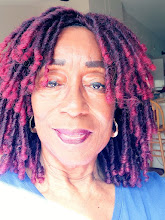Death is sometimes sudden or the outcome of a long term illness. For me sudden death has been the hardest to deal with. If there is a long term illness I find I am better prepared and seem to move through faster. We all are different. Emilie offers some eye opening insight to help navigate the journey.
Dealing With Death - Three Steps Towards Recovery From Grief and Loss
By Emilie Warren
When we die and we lose a loved one who was close to us, we need to understand that the past cannot be forgotten, but that there is a new different future for us. We will not be the same person as we were before our grief and loss. By understanding and dealing with death and by understanding the process of mourning, we can help overcome the burden of bereavement.
Here we outline three stages in bereavement and mourning. Knowing about these grieving steps can help us become used to a different life with a major relationship missing.
First, we need to understand the loss we have suffered rationally, in our head.
By understanding our loss in a rational way, we can move from a state of severe shock and grief into a more normal period of mourning and bereavement.
It can help to develop a story of what happened to the person you lost, thinking through what happened in the run up to the death in the hours, weeks or even years before, if there has been a lengthy illness. By understanding more about why or how a person has passed away, we know our process of mourning can be helped. This moves us away from simply focusing on the moment of death itself.
Secondly, we need to come to terms with our loss emotionally.
Once we begin to accept our loss rationally, we need to come to terms with our loss in our hearts. We do need to ensure we do not avoid reminders of our loss, as this process can help us bring acceptance. The very process of confronting what has upset us can bring about a lessening of the intensity of grief. This is not about forgetting, but about moving away from grief to a place where we can remember the happy memories of our loved one without intense pain.
Thirdly, we need to rediscover ourselves as a different person.
In simple terms, you are a different person without someone who has been very close to you. You may be uncertain how to describe yourself socially. For example, you can no longer necessarily say: "I am Sarah's husband" in a group of people who did not know him.
With time and support, you can discover a new identity for yourself. This is not an identity without the happy memories of your past, which can never be forgotten and will always be a part of you, but it is an identity which needs to work for your future. Discovering who you are again after someone close to you has died is an essential part of coping with your grief and loss.
Dr Emilie Warren has wide experience of helping people cope with grief and bereavement as well as their own fears around death and dying. She is an accomplished writer on the subject, hosting her own website, Dealing with Death. She has a Master's degree and a PhD from Cambridge University in England. She is also an ordained Christian minister. As well as her work with the human soul and spirit, she has a wide range of knowledge across secular psychological arenas. She discusses specific issues about understanding death and dealing with bereavement in her website.
Article Source: http://EzineArticles.com/?expert=Emilie_Warren
Comment: Sometimes when we don’t have understanding of matters like grieving loss, we can complicate it by being hard on ourselves. If you know someone who has a loss due to death, perhaps this article can help you to understand what they are going through.
Encourage yourself today with other people’s stories, visit www.realstoriesrealpeople.blogspot.com.
Subscribe to:
Post Comments (Atom)



No comments:
Post a Comment